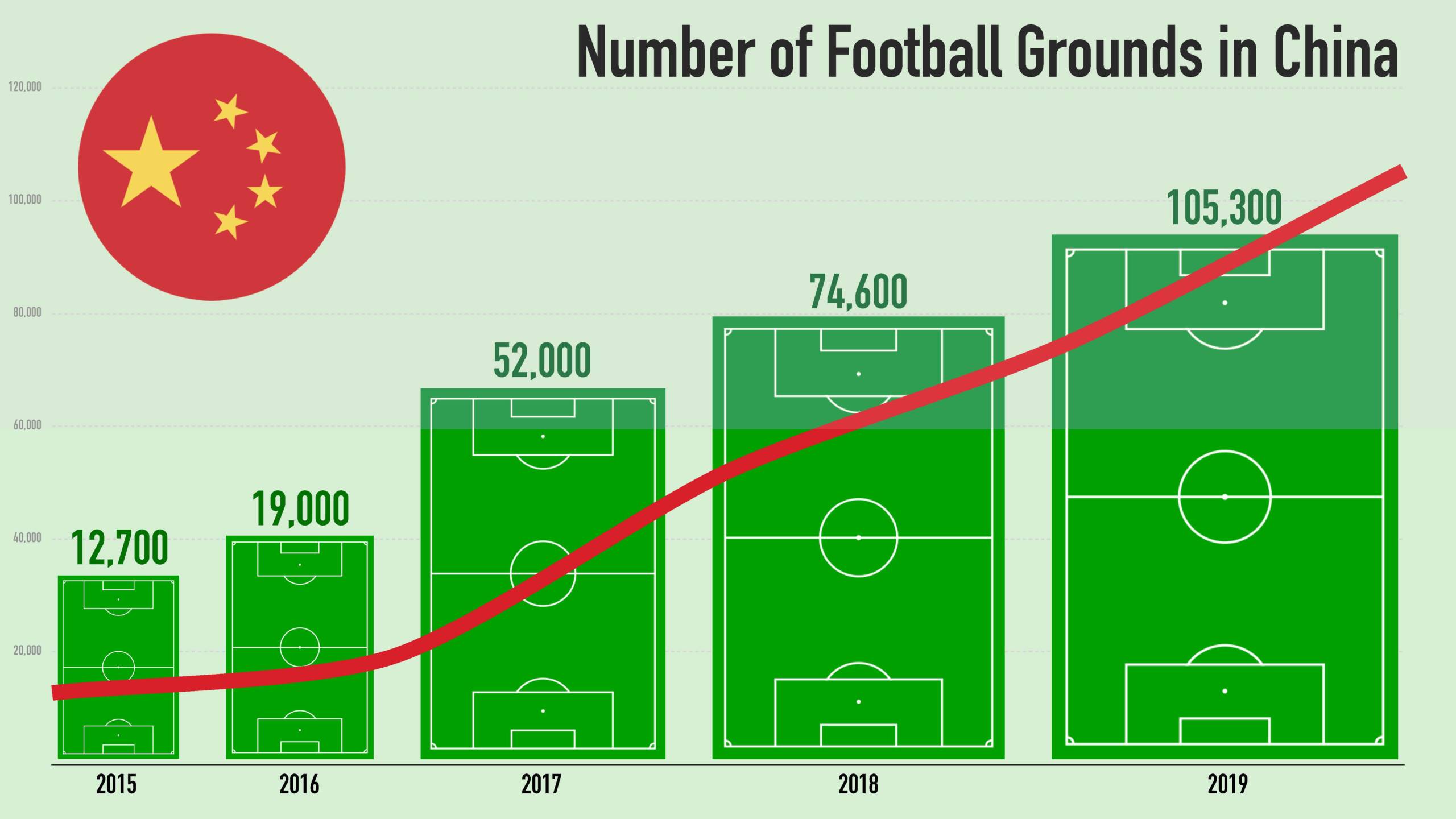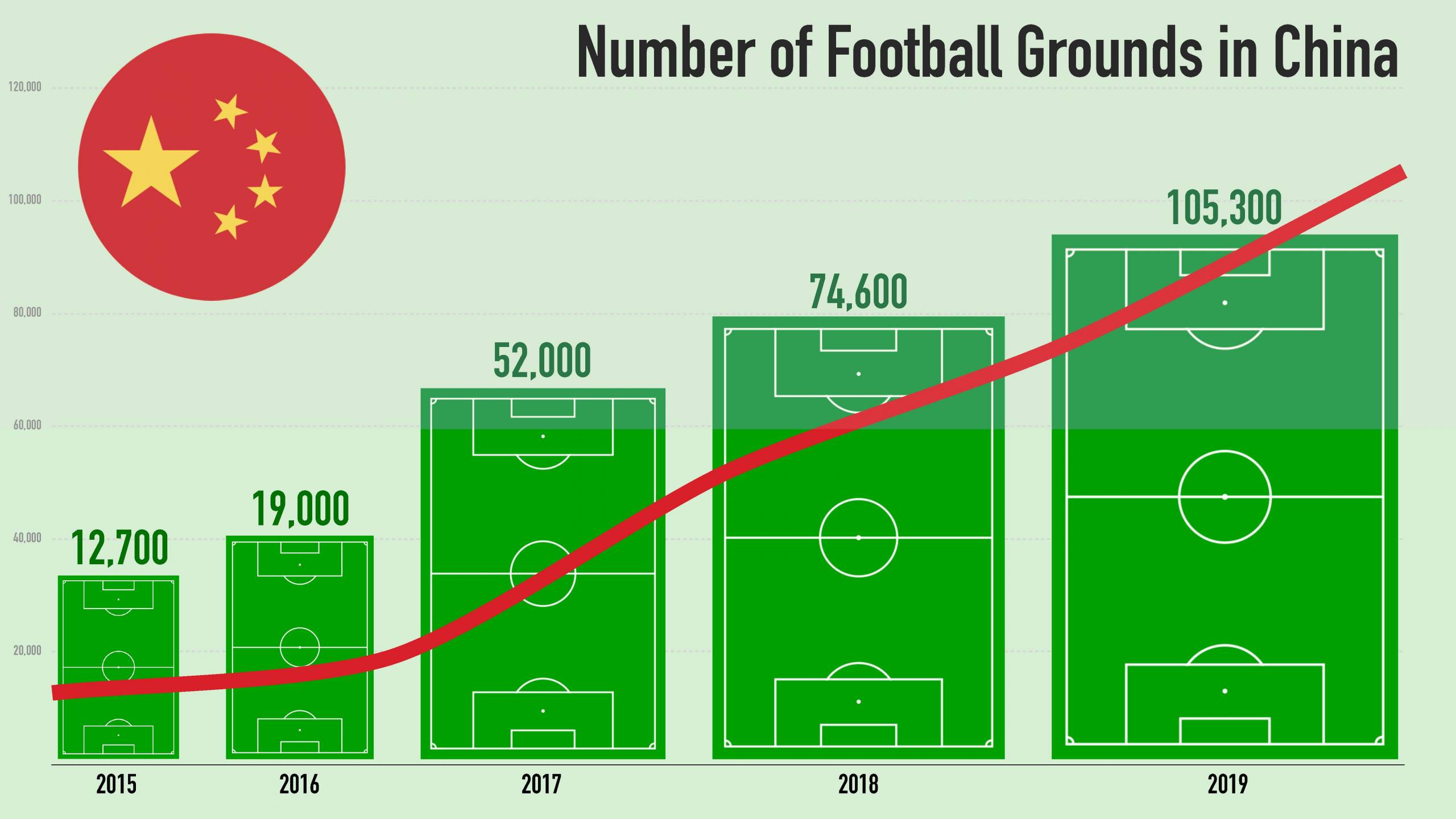World Football Summit looks at AI and its involvement in Chinese football. This article features as part of the latest edition of WFS Digest, our new insider’s guide to the latest and most relevant thoughts and practises from within the football industry. You can subscribe to WFS Digest HERE.
In 2019, the then Chinese Premier, Li Keqiang, acknowledged the concept of applying Artificial Intelligence (AI) to sporting development for the first time. This idea would be known as the national initiative – “How to make China a major sports power”.
«Chinese football will definitely revive in the future, but it needs hard work, generation by generation.» – China head coach Li Xiaopeng
Industry reports widely circulated, speculating on the impact of tech innovation on the performance of local players, boosting AI high on the national agenda. The key test of this innovation would be carried out on none other than the world’s most watched sport: football.
Going back to April 2016, China unveiled its roadmap to become a «world football superpower» by 2050, with plans to get 50 million children and adults playing the game by 2020. Not only that, but there would also be 20,000 football training centres and 70,000 new pitches built over the next four years.
The plan itself, endorsed by Chinese President Xi Jinping who is a renowned football enthusiast, kicked off in the best possible way. According to local data, by the end of 2017, more than 50,000 new football pitches had been installed across the mainland.
But quantity does not always amount to quality. “Chinese football will definitely revive in the future, but it needs hard work, generation by generation,” head coach, Li Xiaopeng, stated after a shock 3-1 defeat to Vietnam in February 2022. In addition to China’s inability to qualify for the 2022 World Cup, which would have been only their second time partaking in the tournament, the result also came as a blow for the football politburo, which had invested heavily in the “rejuvenation of grassroot football academies”.

Investment in academies included the Guangzhou Football Factory (formerly known as Evergrande’s performance centre) – a $185 million venue boasting 50 pitches spread over more than 160 acres, with 3,000 resident students from across the country, and the Dalian Football Youth Training Centre – valued at over $260 million, showcasing 23 training pitches, a 5000-seat competition venue and numerous data analysis laboratories.
Both facilities were built in little less than a year, with the objective of feeding the men’s national team with 11 players good enough to reach the pinnacle of global football: the 2022 World Cup in Qatar. This journey to reach the World Cup came to an end in Hanoi against Vietnam.
Still, the project cannot be seen as a failure. Despite sitting 75th in the FIFA rankings, behind Montenegro, Cabo Verde and Iraq, a combination of national desire to succeed, elite training facilities, and a leading artificial intelligence sector, the Chinese national team has solid foundations to one day reach the status of superpower.
Every player, every movement
China’s approach to football performance academies initially relied on obtaining foreign know-how in the fields of coaching, tactical analysis and scouting. Despite efforts to teach English and Spanish, the mother-tongue of most expat coaches, it soon became evident that communication was not the main barrier. The biggest problem was the number of people on the pitch: a dozen teachers could not track and evaluate the performance of a hundred students.
Another issue identified by global talent scouts is that children in China have a high technical level, but they particularly struggle in the decision-making process. As former president of Google China, Kai-Fu Lee, once said: “the neural network form of AI mimics the underlying architecture of the brain in computer form… today’s elite football players are well paid for their ability to take inputs in, process that information, then make the best decision based on that information – which is precisely what AI algorithms do best.”
The solution then seemed obvious, and help was offered by local startups active in the digitisation of football data, blending wearable devices, cloud computing technology and AI. These technologies combine to provide accurate statistics about what is happening with the ball on the pitch, making it possible for coaches to automatically track, evaluate and eventually correct each players’ movements.
Endorsed by China’s Education Ministry, the Chinese Football Association and leading tech corporations, the digitalisation of football training has become the focus of all major academies. During training sessions, devices collect hundreds of data points, including ball control, sprints and dribbling. Accelerometers and gyroscopes are also used to render a virtual picture of the players’ body movements and changes in posture during activity.
In the future it is anticipated that deep-learning software will estimate the ideal output in a given situation during the match, and as the volume of data increases, accuracy will improve over time. Additionally, to ensure that unstable wireless connections do not negatively affect data collection during training, over one million 5G network base stations have been installed around pitches.
Case study: FC Bayern academies in China
The same focus on investing in world class technologies that is popular among Chinese elite academies, has been spearheaded by one of the most successful teams on and off the pitch: FC Bayern Munich. Their first football school in China officially opened in Qingdao in October 2016, and in the following 2 years, two more were added in Shenzhen and Taiyuan. All Bayern centres share the same recipe for success: first-class sports venues, including small and large fields; state-of-the-art data collection; rehabilitation and physiotherapy facilities, and expertise provided by the regular presence of Bayern coaches.
At their Munich headquarters things are no different. In December 2020, the club unveiled its new football simulator, Skills.Lab., designed to record and evaluate football-specific parameters of a player on a technical-cognitive basis. Hasan Salihamidžić, board member for sport, commented «It’s already evident in the first few months after commissioning, that the Skills.Lab, in conjunction with our Innovation Centre, will make an important contribution to talent management in the future”. Whether or not Bayern plans to export the Skills.Lab to its Chinese academies is uncertain, but surely sharing the know-how internally would not be prohibitively costly, considering that in addition to the academies, the club also has a representative branch in Shanghai.
Servus, Liu! ????
18-year-old goalkeeper Liu Shaoziyang becomes first Chinese player at FC Bayern, joining @fcbayerncampus from partner club FC Wuhan Three Towns on a contract through 2025. ✍️✅ pic.twitter.com/BmMFc56nPm
— ???????? FC Bayern US ???????? (@FCBayernUS) December 16, 2021
Time’s ticking
AI is used today not only in training, but also in tactical coaching, refereeing, injury prevention, and sports endurance analysis across football in China. Off the pitch, it also plays an important role in the improvement of players’ diets and the monitoring of sleeping patterns.
However, nine years after the opening of the Guangzhou Football Factory, the academy is yet to provide any players for the national team. Instead, to strengthen their qualifying campaign for the 2022 FIFA World Cup in Qatar, four foreign-born nationalised players were called up to play for China.
Is it too early to evaluate the impact of AI on Chinese Football or are there other initiatives which should have been prioritised? Only time will tell. What is certain is that Guangzhou FC (formerly Evergrande) will field fourteen players under the age of 22 (thirteen of whom come from the Guangzhou Football Factory) in its roster for the 2022 season of the Chinese Super League. Their performance will be the first real benchmark.
Alberto Cazzaniga (Ganassa)
This article features as part of the latest edition of WFS Digest, our new insider’s guide to the latest and most relevant thoughts and practises from within the football industry. You can subscribe to WFS Digest HERE.

